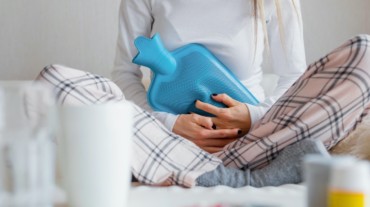Chat with ![]()

Chat with ![]()


Do you feel your menstrual cramps get out of control, especially during the winter season? If yes, we totally understand! This happens with many women, and unfortunately, the cramps can really cause you to curl up and remain tucked in bed.
Although many women pop a pill to get relief from the pain caused by menstrual cramps, it isn’t healthy at all. And before we get down to the solutions, let’s first understand why the winter season triggers period pain.

Do you remember your mom telling you to deal with your period pain, every time it got worse during the cold? Well, she’s right! Your period can be far more intense and uncomfortable during the winter months, due to the impact of seasonal changes on the body. And not just you, many women complain about this issue.
To understand how cold weather impacts our menstrual cycle, HealthShots got in touch with Dr Manisha Singh, Senior Consultant – Gynaecologist and Reproductive Medicine, Fortis hospital, Bannerghatta Road, Bengaluru.
Being less active and hibernating during the winter season is one of the leading causes. There are many other reasons, which Dr Singh shares.
Period pain is more common during the winter season, because people prefer to stay indoors for lengthy periods. This limits their exposure to sunlight and affects vitamin D levels. And lack of sunshine may affect the thyroid gland, which may lead to hormonal imbalance, leading to intense menstrual cramps.
When the weather is cold outside, your arteries contract, restricting blood flow and forcing your heart to work much harder to circulate blood around the body. As a result, vasoconstriction occurs and this reduces the volume of space inside the afflicted blood vessels. Blood flow is reduced, when blood vessel volume is diminished.

At the same time, blood flow resistance or force is increased, and blood pressure rises as a result of this. Seasonal affective disorder also occurs, which leads to mood swings and depression.
Winter means that we move less and eat more. This can make premenstrual symptoms worse and lead to irregular menstrual cycles.

Most importantly, drink enough water every day to keep yourself hydrated!